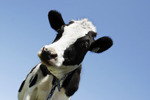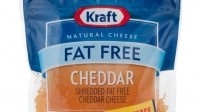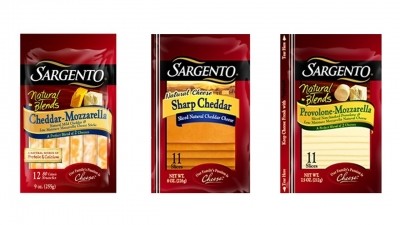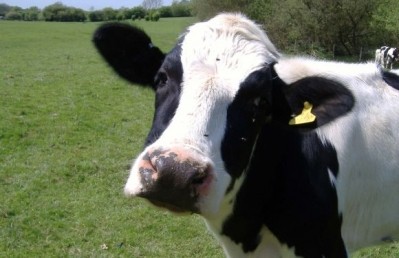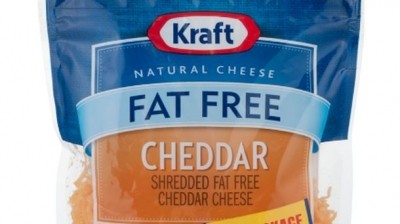Sargento attorney: This case is without legal basis and speculative
Sargento 'natural' cheese under fire in new lawsuit over GMO feed, rbST milk
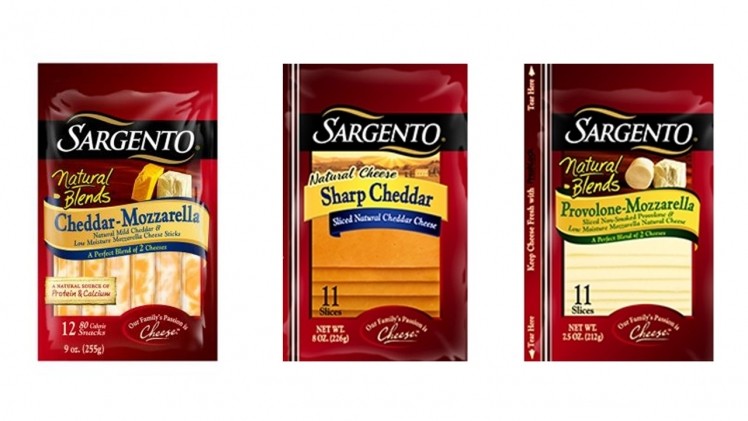
In a complaint* against cheese maker Sargento Foods filed by high-profile attorney Michael Reese (who has also brought a similar case against Dannon), plaintiff Brittany Stanton alleges that reasonable consumers would not expect cheese labeled ‘natural’ to use milk from cows likely fed genetically engineered feed and treated with recombinant Bovine Soatotropin (rbST, also known as rBGH or recombinant bovine growth hormone).
To support her claims, Stanton cites a 2014 Consumer Reports survey suggesting that 64% of US consumers believe a ‘natural’ label on meat or poultry products should mean that the animals’ feed contained no GMOs.
The same survey, said Stanton, “confirmed that a majority (68%) of consumers think that the ‘natural’ label on meat or poultry products currently means the animals’ are not given artificial growth hormones, such as rbST.”
Plaintiff: Animal rearing conditions should factor into ‘natural’ claims criteria
The conditions in which the cows are reared should also disqualify dairy products produced from their milk from making natural claims, argues Stanton: “Reasonable consumers believe that if a cow consumes GMO corn or soy, or is given rbST, then the cow’s end products are not ‘natural.’
“Furthermore… dairy cows, which produce the milk used to make the products, are fed grain (instead of grass) and forced into unnatural continuous birthing and lactation through genetic manipulation, antibiotics, and hormones such as bovine growth hormone (rBGH).
“A reasonable consumer would not consider this process to be natural and, thus, would not consider milk from these dairy cows to be natural.”
The case highlights a growing trend in food litigation to probe beyond ingredients detectable in finished products and look further down the supply chain at things such as incidental additives, processing aids, pesticide residues, genetically engineered feed, and animal rearing methods.
recombinant Bovine somatotropin (rbST) is an animal drug approved by FDA to increase milk production in dairy cows.
In a March 2016 letter responding to a citizen's petition calling for on-pack warnings about rBST, the FDA said: "FDA concluded that Posilac administered by subcutaneous injection as 500 mg of rbGH every 14 days, starting during the 9th to 10th week of lactation, is safe and effective for its intended use in healthy lactating dairy cows. In addition, the Agency found that there was no significant difference between milk from cows treated with rbGH and milk from cows that have not been treated with rbGH."
Read more HERE.
Attorney: Case is without legal merit and speculative
However, Angel Garganta, partner at law firm Venable LLP, who is representing Sargento, told FoodNavigator-USA that the lawsuit - which was filed in the Northern District of California (a.k.a. the ‘food court’) – was “without legal basis and speculative.”
He added: “Sargento believes that this case has no merit. The term ‘natural cheese’ has been used by cheese makers for decades to differentiate it from processed cheese, so it’s very much a term of art in the industry.
“But aside from that, the plaintiff’s theory of the case, that somehow these products are not natural because they are derived from milk that’s derived from GMO feed from cows fed rBST or raised in particular ways, these allegations are entirely speculative as regards to Sargento.
“It’s frankly implausible. We think that consumers do understand what ‘natural cheese’ means as opposed to processed cheese, and we don’t believe reasonable consumers understand the term natural the way this plaintiff claims they do.”
That aside, the FDA is currently probing the meaning of ‘natural’ claims on food packaging, he noted, and multiple ‘natural’ lawsuits had been stayed by the courts on the ground of primary jurisdiction.
“We believe this case should be stayed on these grounds as well.”
Daisy-chained logic?
Dannon, which is defending a very similar case also filed by Reese LLP, also rejected Reese’s logic in a recent motion to dismiss the case:
“This daisy-chained, twice ‘derived’ allegation is unsupported by any authority and must fail. Plaintiff does not allege how any purportedly ‘unnatural’ characteristic moves through the supply chain from the feed, to the cows, to the milk, to the products, or articulate how a reasonable consumer would be misled. The mere consumption of genetically modified food simply cannot affect the genetic makeup of the organism consuming it.”
Moreover, the logic deployed in the lawsuit “has not been adopted by the FDA and has been rejected by both courts and Congress,” argued Dannon, which also noted that federal GMO labeling legislation signed into law last year by President Obama does not extend GMO labeling to products made from milk or meat from animals fed GM feed.
Is 'natural cheese' a special category? In a lawsuit** filed against Kraft Foods Group in 2014, plaintiff Claudia Morales alleged that Kraft’s use of the term ‘natural cheese’ to market and sell its shredded fat free cheddar was misleading as the product contained artificial coloring.
However, Kraft argued that consumers assumed the phrase natural cheese' referred to “the process by which the cheese is made”, noting that many other companies also sell products labeled ‘natural cheese’ as a descriptor for a type of cheese (to differentiate it from 'processed cheese'). The case is still moving through the courts.
Natural claims and GMOs
While new federal GMO labeling legislation (the details of which are being thrashed out by USDA) will not require GMO labeling on milk or meat from animals fed GM feed, it does not make any reference to whether you can call such products ‘natural,’ however.
The FDA unveiled a probe into 'natural' claims in 2015, but has said nothing since about when - or if - it plans to come up with a clear legal definition.
While some attorneys believe the FDA’s natural probe could simply “die on the vine,” others – notably Perkins Coie partner David Biderman – predict it will pursue the endeavor, but that it could take some time.
*Brittany Stanton et al v. Sargento Foods, Inc. 3:17-cv-02881-EDL filed in the northern district of California.
** Claudia Morales et al v Kraft Foods Group Inc et al. Case No. 2:14-cv-04387, central district of California.
